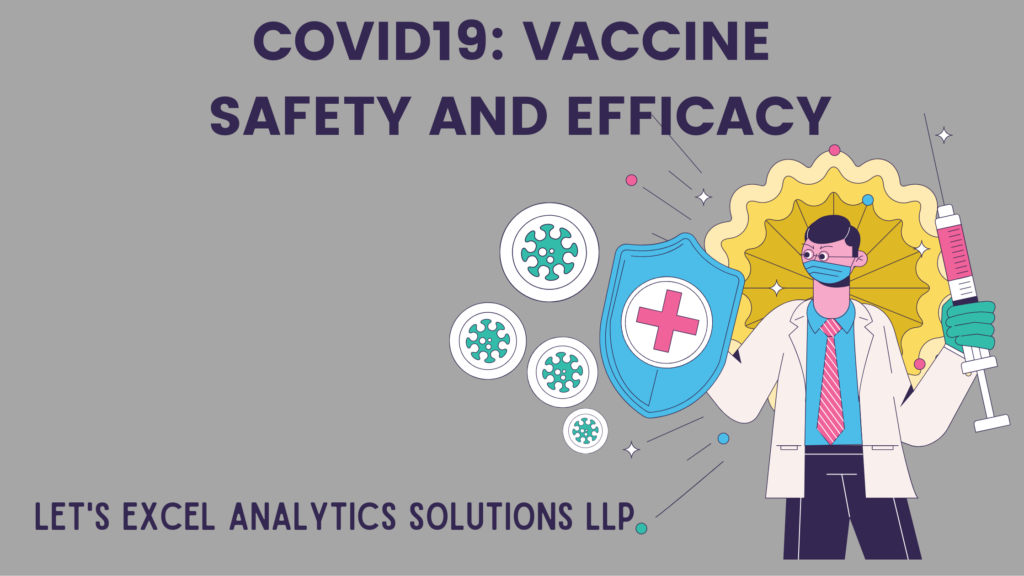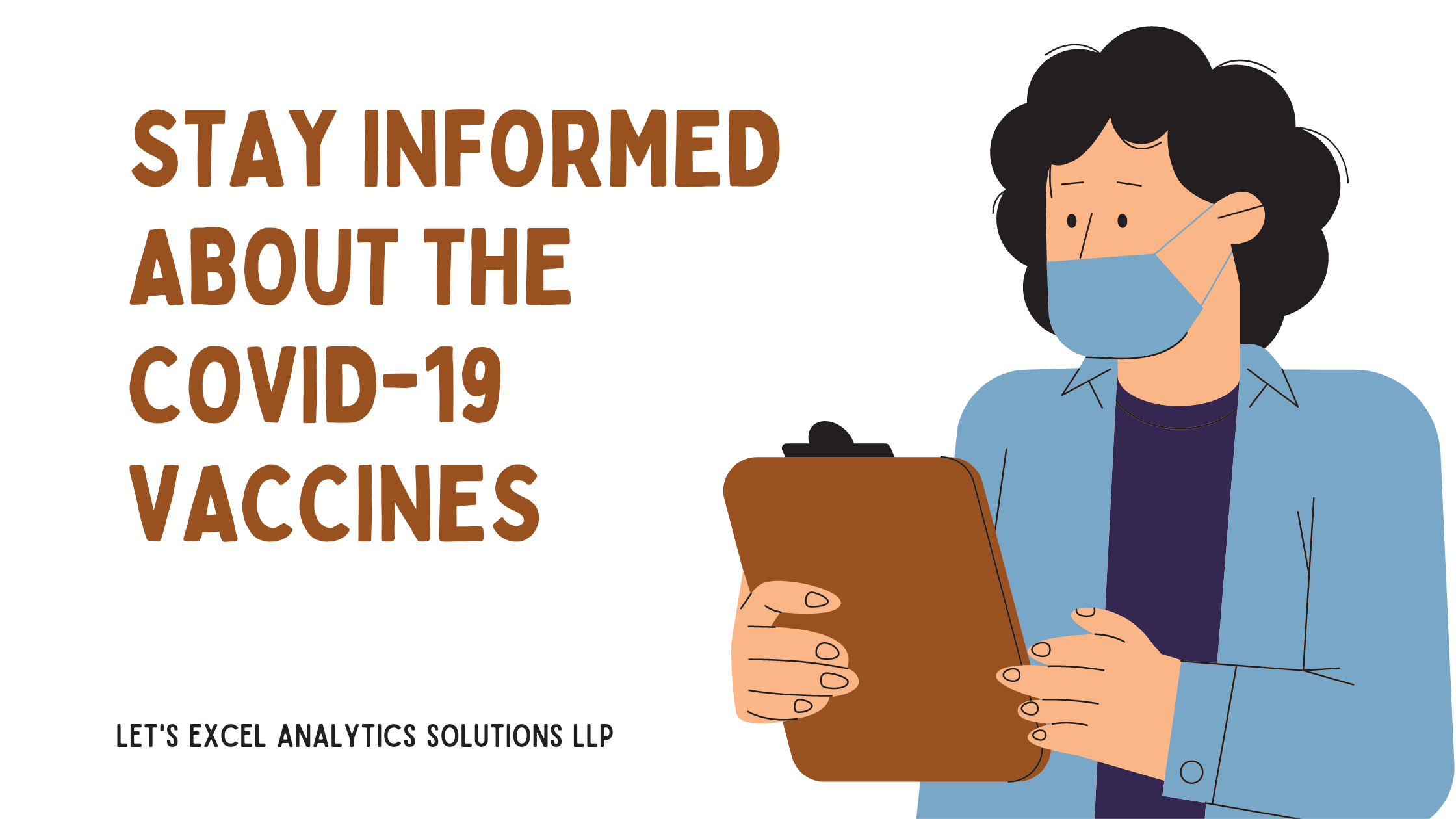Introduction
Today everybody is interested to know about the safety and efficacy of the Covid19 vaccines. People want to know more about several vaccine options and the best vaccine that will protect them against Covid19. To answer these and many other questions, in this article, we describe basic science and working Principle behind the Covid19 vaccines.
What is a Vaccine?
Vaccine is a biological product that stimulates an immune response to a specific disease upon inoculation. This process by which a person becomes immune to disease through vaccination (inoculation) is referred to as immunization.
Vaccines: Are They Really Effective?
Data speaks louder than words! According to World Health Organisation (WHO), vaccines prevent more than 20 life-threatening diseases and save 2-3 million deaths every year from diphtheria, pertussis, tetanus, influenza, and measles.
Poliomyelitis, one of the most feared epidemics ever encountered by humans, is eliminated from most countries. WHO declared India a polio-free country in March 2014. This achievement is believed to have been spurred by the extensive pulse polio (vaccination) campaign.

How Efficacious Are COVID-19 Vaccines?
The efficacy of a vaccine is determined in a double-blind randomized controlled trial. It involves randomly assigning participant volunteers to either a treatment or control (placebo) groups; neither the participant nor the experimenter knows who is receiving what treatment. Both the treatment groups live their normal life and are monitored for COVID-19 symptoms over a specified period of time. The efficacy of a vaccine is calculated using the following formula.

v- cases among vaccinated p- cases among placebo N- number of placebo n- number of vaccinated
For example, 43,000 volunteers were enrolled in Pfizer/BioNTech vaccine trials, who were distributed equally between the treatment and placebo groups; 170 in placebo and only 8 in the treatment group developed COVID-19 over the next several months. This corresponds to the vaccine efficacy of 95%.
So, what does 95% efficacy indicate? It doesn’t mean that only 5% of vaccinated people would develop COVID-19 but the vaccinated people are 95% less likely to develop COVID-19 upon exposure.
| Innovator | Brand Name | Efficacy |
| Pfizer/BioNTech | Commirnaty | 95% |
| Moderna | mRNA-1273 | 94% |
| RDIF | Sputnik V | 92% |
| Novavax | Covovax | 89% |
| Bharat Biotech | Covaxin | 81% |
| Oxford/AstraZeneca | Covishield | 67% |
| Johnson & Johnson | Janssen COVID-19 vaccine | 66% |
| Sinopharma | Sinovac | 51% |
Though the efficacy of all the vaccines are calculated using the above formula but the trials were performed under different circumstances. Scientists argue that the Pfizer/BioNTech and Moderna vaccine trials were performed during the period when the number of daily cases were significantly low. In contrast, Johnson & Johnson vaccine trials were conducted during the time when there were highest number of daily cases. The probability of the participant volunteers to contract virus was higher in Johnson & Johnson trials. Moreover, the virus strain (B.1.1.7) in Pfizer/BioNTech and Moderna trials is known to be less virulent than the variants (B.1.351 and P.2) present during Johnson & Johnson trials. Also the opportunity of a volunteer to get exposed to the COVID-19 is also highly variable.
There’s a myth around COVID-19 vaccine that vaccination averts all the possibilities of contracting the virus. No! That’s not right! There’s a possibility of infection even after vaccination but the vaccine trains our immune system how to deal with the virus. Consequently, the patient might experience mild to moderate symptoms but significantly reduces the chances of hospitalisation and deaths.
Is there any other way to determine which vaccine is the most efficacious? Yes! For that matter, all the vaccines have to be studied together in a double blind randomised clinical trial. But that’s not the need of the hour.
Are Covid19 Vaccines Safe Enough?
Most COVID-19 vaccines are very safe. It is perfectly normal to have mild side effects after vaccination. The common side effects include pain, redness and swelling. Other side effects are tiredness, headache, muscle pain, nausea, fever, and chills. These side-effects are short-term and are attributable to the mechanism of action of the vaccines.
However, it is important to mention that four cases of serious adverse reactions ( blood clotting with low platelets count) were reported in Norway after vaccination with AstraZeneca vaccine. Two of them died due to blood haemorrhage and other two were hospitalised. Similar adverse reactions were reported in Denmark, Italy and United Kingdom. However, European Medical Association (EMA’s) safety committee concluded that the unusual blood clot with low platelets count are very rare side effects of the vaccine. Only 1 out of 100,000 cases have chances of developing blood clotting reactions which is many folds low as compared to the COVID-19 related deaths.
Will Covid19 Vaccines Demonstrate Same Effectiveness Despite Mutations in the Virus?
As the data continues to be collected on the new variants of the COVID-19, most of the vaccines are reported to provide protection against virus because these vaccines elicit a broad immune response involving a range of antibodies and cells. Researchers claim that most of the vaccines are designed based on the spike protein that is less likely to be mutated. Conversely, as long as the spike protein is not mutating, the vaccines would continue providing protection against COVID-19.
Conclusion
Herd immunity requires a large enough population to be vaccinated to prevent widespread transmission of COVID-19. The rate at which the population is vaccinated is going to play a crucial role in ending the deaths and emergency hospitalizations. It is important to reiterate that vaccines are very safe and mild short-term side effects are the common ones.
Curious to know more about Let’s Excel Analytics Solutions LLP?
